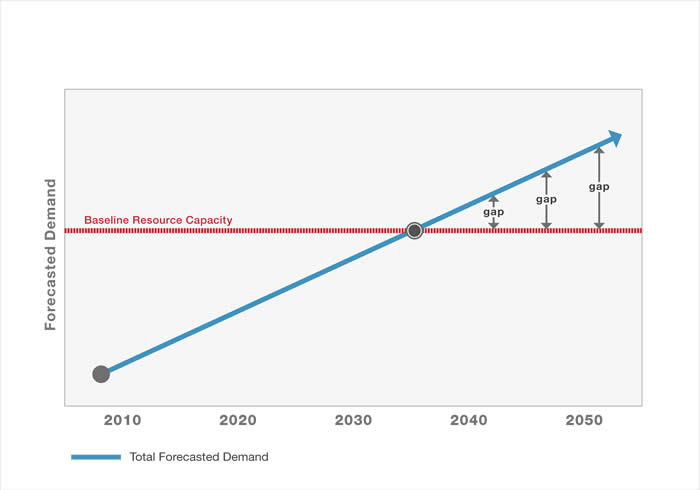Regional water Plans
Click on the links below to view each Council's Regional Water Plan.
| Altamaha | Coastal Georgia | Coosa - North Georgia |
Lower Flint Ochlockonee | Middle Chattahoochee |
| Middle Ocmulgee | Savannah Upper Ogeechee |
Suwannee Satilla | Upper Flint |
Upper Oconee |
Please click here to view public comments received for the Initial Draft Recommended Regional Water Plans
Please click here to view EPD's comment responses for public comments received on the Initial Draft Recommended Regional Water Plans
Click here to view supplemental materials for the Councils' Regional Water Plans.
The role of the regional water planning councils is to prepare initial recommended Regional Water Plans. These long-term regional water resource management plans include resource assessments, estimates of current and future water needs, and those management practices necessary to meet the region's needs within the capabilities of the resources.
The plans must support the region's (and state's) economy, protect the public health and natural systems, and enhance the quality of life for all citizens. In order to do so, the Regional Water Plans promote sustainable use, conservation and reuse of water, guard against a shortage of water, and promote the efficient use of the water resource. They are also based upon detailed scientific analysis of the water resources, the projected future condition of the resources, current demand, and estimated future demands on the resource.
The Regional Water Plans are based on the best available science; therefore, Georgia Environmental Protection Division (EPD) has provided each council with the results of Water Resource Assessments that model how much water is available from the water resources on which the region relies. Assessments also estimated the capacity of the surface water resources to assimilate pollution.
In addition to the Water Resource Assessments, each council has also used 10-, 20-, 30-, and 40-year water and wastewater demand forecasts for each region to 1) understand the likely changes the region will experience; and 2) identify any "gaps" that may exist between the capabilities of the resources as articulated by the Assessments and the future regional needs.
In the event "gaps" between available water and future (or current) demands are identified, the councils have determined which water and land use management practices should be employed to ensure there is sufficient water and assimilative capacity to meet future needs. EPD has used computer models to test the ability of the recommended practices to close any identified "gaps."

All of the water planning regions border other regions or share surface or groundwater resources with other regions; therefore, each regional planning council has communicated and coordinated with adjacent, upstream and/or downstream councils as well as EPD to ensure the appropriateness of the recommended management practices.
EPD and the councils have used an iterative process of recommendation and modeling, to arrive at a set of management practices to meet the Region's future needs.
Each council submitted a draft initial recommended Regional Water Plan to the Director of EPD, who adopted the plans in November 2011.
Now that initial recommended Regional Water Plans have been adopted for each region, all EPD permits and Georgia Environmental Facilities Authority (GEFA) grants and loans for water projects will be guided by each Plan respectively.